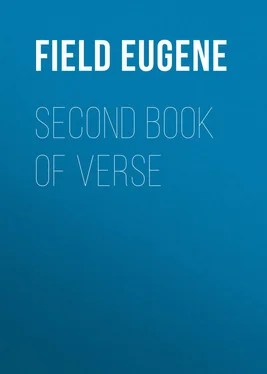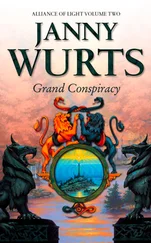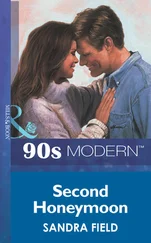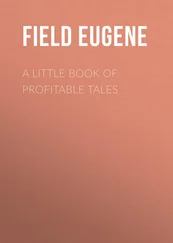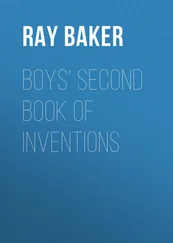Eugene Field - Second Book of Verse
Здесь есть возможность читать онлайн «Eugene Field - Second Book of Verse» — ознакомительный отрывок электронной книги совершенно бесплатно, а после прочтения отрывка купить полную версию. В некоторых случаях можно слушать аудио, скачать через торрент в формате fb2 и присутствует краткое содержание. Жанр: literature_19, Поэзия, foreign_antique, foreign_prose, foreign_poetry, на английском языке. Описание произведения, (предисловие) а так же отзывы посетителей доступны на портале библиотеки ЛибКат.
- Название:Second Book of Verse
- Автор:
- Жанр:
- Год:неизвестен
- ISBN:нет данных
- Рейтинг книги:4 / 5. Голосов: 1
-
Избранное:Добавить в избранное
- Отзывы:
-
Ваша оценка:
- 80
- 1
- 2
- 3
- 4
- 5
Second Book of Verse: краткое содержание, описание и аннотация
Предлагаем к чтению аннотацию, описание, краткое содержание или предисловие (зависит от того, что написал сам автор книги «Second Book of Verse»). Если вы не нашли необходимую информацию о книге — напишите в комментариях, мы постараемся отыскать её.
Second Book of Verse — читать онлайн ознакомительный отрывок
Ниже представлен текст книги, разбитый по страницам. Система сохранения места последней прочитанной страницы, позволяет с удобством читать онлайн бесплатно книгу «Second Book of Verse», без необходимости каждый раз заново искать на чём Вы остановились. Поставьте закладку, и сможете в любой момент перейти на страницу, на которой закончили чтение.
Интервал:
Закладка:
My doctor said I mustn't eat
High food and seasoned game;
But surely gosling is a meat
With tender nourishment replete.
Leastwise I gayly ate this same;
I braved dyspepsy – wouldn't you
For gosling stew?
I've feasted where the possums grow,
Roast turkey have I tried,
The joys of canvasbacks I know,
And frequently I've eaten crow
In bleak and chill Novembertide;
I'd barter all that native crew
For gosling stew!
And when from Rhineland I adjourn
To seek my Yankee shore,
Back shall my memory often turn,
And fiercely shall my palate burn
For sweets I'll taste, alas! no more, —
Oh, that mein kleine frau could brew
A gosling stew!
Vain are these keen regrets of mine,
And vain the song I sing;
Yet would I quaff a stoup of wine
To Oberhausen auf der Rhine,
Where fared I like a very king:
And here's a last and fond adieu
To gosling stew!
CATULLUS TO LESBIA
COME, my Lesbia, no repining;
Let us love while yet we may!
Suns go on forever shining;
But when we have had our day,
Sleep perpetual shall o'ertake us,
And no morrow's dawn awake us.
Come, in yonder nook reclining,
Where the honeysuckle climbs,
Let us mock at Fate's designing,
Let us kiss a thousand times!
And if they shall prove too few, dear,
When they're kissed we'll start anew, dear!
And should any chance to see us,
Goodness! how they'll agonize!
How they'll wish that they could be us,
Kissing in such liberal wise!
Never mind their envious whining;
Come, my Lesbia, no repining!
JOHN SMITH
TO-DAY I strayed in Charing Cross, as wretched as could be,
With thinking of my home and friends across the tumbling sea;
There was no water in my eyes, but my spirits were depressed,
And my heart lay like a sodden, soggy doughnut in my breast.
This way and that streamed multitudes, that gayly passed me by;
Not one in all the crowd knew me, and not a one knew I.
"Oh for a touch of home!" I sighed; "oh for a friendly face!
Oh for a hearty hand-clasp in this teeming, desert place!"
And so soliloquizing, as a homesick creature will,
Incontinent, I wandered down the noisy, bustling hill,
And drifted, automatic-like and vaguely, into Lowe's,
Where Fortune had in store a panacea for my woes.
The register was open, and there dawned upon my sight
A name that filled and thrilled me with a cyclone of delight, —
The name that I shall venerate unto my dying day, —
The proud, immortal signature: "John Smith, U. S. A."
Wildly I clutched the register, and brooded on that name;
I knew John Smith, yet could not well identify the same.
I knew him North, I knew him South, I knew him East and West;
I knew him all so well I knew not which I knew the best.
His eyes, I recollect, were gray, and black, and brown, and blue;
And when he was not bald, his hair was of chameleon hue;
Lean, fat, tall, short, rich, poor, grave, gay, a blonde, and a brunette, —
Aha, amid this London fog, John Smith, I see you yet!
I see you yet; and yet the sight is all so blurred I seem
To see you in composite, or as in a waking dream.
Which are you, John? I'd like to know, that I might weave a rhyme
Appropriate to your character, your politics, and clime.
So tell me, were you "raised" or "reared"? your pedigree confess
In some such treacherous ism as "I reckon" or "I guess."
Let fall your telltale dialect, that instantly I may
Identify my countryman, "John Smith, U. S. A."
It's like as not you air the John that lived aspell ago
Deown East, where codfish, beans, 'nd bona-fide schoolma'ams grow;
Where the dear old homestead nestles like among the Hampshire hills,
And where the robin hops about the cherry-boughs 'nd trills;
Where Hubbard squash 'nd huckleberries grow to powerful size,
And everything is orthodox from preachers down to pies;
Where the red-wing blackbirds swing 'nd call beside the pickril pond,
And the crows air cawin' in the pines uv the pasture lot beyond;
Where folks complain uv bein' poor, because their money's lent
Out West on farms 'nd railroads at the rate uv ten per cent;
Where we ust to spark the Baker girls a-comin' home from choir,
Or a-settin' namin' apples round the roarin' kitchen fire;
Where we had to go to meetin' at least three times a week,
And our mothers learnt us good religious Dr. Watts to speak;
And where our grandmas sleep their sleep – God rest their souls, I say;
And God bless yours, ef you're that John, "John Smith, U. S. A."
Or, mebbe, Col. Smith, yo' are the gentleman I know
In the country whar the finest Democrats 'nd hosses grow;
Whar the ladies are all beautiful, an' whar the crap of cawn
Is utilized for Burbon, and true awters are bawn.
You've ren for jedge, and killed yore man, and bet on Proctor Knott;
Yore heart is full of chivalry, yore skin is full of shot;
And I disremember whar I've met with gentlemen so true
As yo' all in Kaintucky, whar blood an' grass are blue,
Whar a niggah with a ballot is the signal fo' a fight,
Whar the yaller dawg pursues the coon throughout the bammy night,
Whar blooms the furtive possum, – pride an' glory of the South!
And anty makes a hoe-cake, sah, that melts within yo' mouth,
Whar all night long the mockin'-birds are warblin' in the trees,
And black-eyed Susans nod and blink at every passing breeze,
Whar in a hallowed soil repose the ashes of our Clay, —
H'yar's lookin' at yo', Col. "John Smith, U. S. A."
Or wuz you that John Smith I knew out yonder in the West, —
That part of our Republic I shall always love the best!
Wuz you him that went prospectin' in the spring of '69
In the Red Hoss Mountain country for the Gosh-all-Hemlock mine?
Oh, how I'd liked to clasped your hand, an' set down by your side,
And talked about the good old days beyond the Big Divide, —
Of the rackaboar, the snaix, the bear, the Rocky Mountain goat,
Of the conversazzhyony, 'nd of Casey's tabble-dote,
And a word of them old pardners that stood by us long ago, —
Three-fingered Hoover, Sorry Tom, and Parson Jim, you know!
Old times, old friends, John Smith, would make our hearts beat high again,
And we'd see the snow-top mountains like we used to see 'em then;
The magpies would go flutterin' like strange sperrits to 'nd fro,
And we'd hear the pines a-singin' in the ragged gulch below;
And the mountain brook would loiter like upon its windin' way,
Ez if it waited for a child to jine it in its play.
You see, John Smith, just which you are I cannot well recall;
And, really, I am pleased to think you somehow must be all!
For when a man sojourns abroad awhile, as I have done,
He likes to think of all the folks he left at home as one.
And so they are, – for well you know there's nothing in a name;
Our Browns, our Joneses, and our Smiths are happily the same, —
All represent the spirit of the land across the sea;
All stand for one high purpose in our country of the free.
Whether John Smith be from the South, the North, the West, the East,
So long as he's American, it mattereth not the least;
Whether his crest be badger, bear, palmetto, sword, or pine,
His is the glory of the stars that with the stripes combine.
Where'er he be, whate'er his lot, he's eager to be known,
Not by his mortal name, but by his country's name alone;
And so, compatriot, I am proud you wrote your name to-day
Upon the register at Lowe's, "John Smith, U. S. A."
Интервал:
Закладка:
Похожие книги на «Second Book of Verse»
Представляем Вашему вниманию похожие книги на «Second Book of Verse» списком для выбора. Мы отобрали схожую по названию и смыслу литературу в надежде предоставить читателям больше вариантов отыскать новые, интересные, ещё непрочитанные произведения.
Обсуждение, отзывы о книге «Second Book of Verse» и просто собственные мнения читателей. Оставьте ваши комментарии, напишите, что Вы думаете о произведении, его смысле или главных героях. Укажите что конкретно понравилось, а что нет, и почему Вы так считаете.
